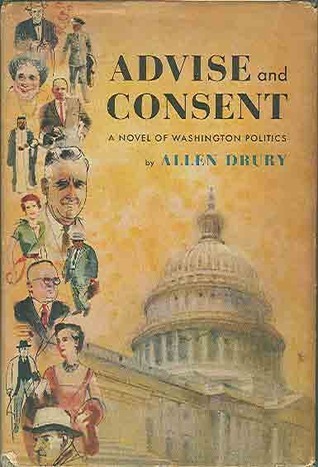What do you think?
Rate this book


616 pages, Paperback
First published July 11, 1959
“. . . each is aware that the Senate is about to engage in one of the battles of a lifetime; and each is wondering what it will mean for him in terms of power, reputation, advantage, political fortune, national responsibility, and integrity of soul.”
“A universal guilt enshrouded the middle years of the twentieth century in America; and it attached to all who participated in those times.”
'What a strange life we all lead in this town,' he said, 'and all because we think we're doing the right thing for the country.'
Thus comforted by his wry imaginings of the past, he would reflect that this, in essence, was the American government: an ever-shifting, ever-changing, ever-new and ever-the-same bargaining between men's ideals and their ambitions; a very down-to-earth bargaining, in most cases, and yet a bargaining in which the ambitions, in ways that often seemed surprising and frequently were quite inadvertent, more often than not wound up serving the purposes of the ideals.
'That is America's problem right now, it seems to me: we aren't committed, and we dn't really care, about anything. Our enemies and our friends together have succeeded in paralyzing us with self-doubt, and under the tutelage of all of you we have become afraid to really care, because to really care has become unfashionable and rather laughable, and also, of course, because to really care would impose upon us the necessity of acting in support of the things we really care for; and nobody wants us to do that anymore. We don't even want to do it ourselves.'This is how America dies; not by cabinet confirmation decisions or passing legislative bills or signing executive orders, but by disengagement.